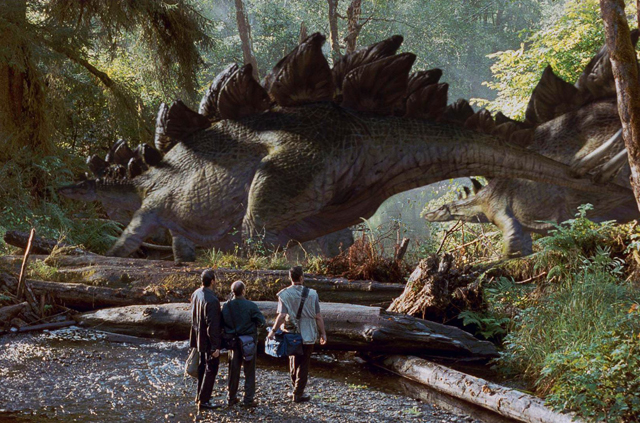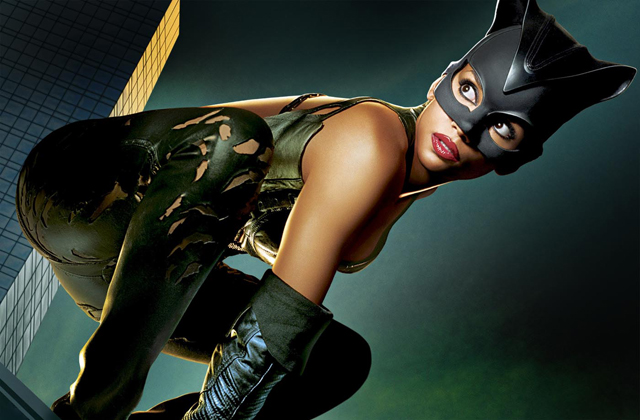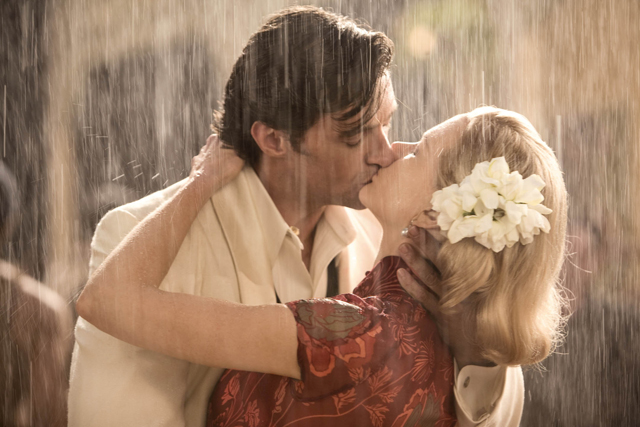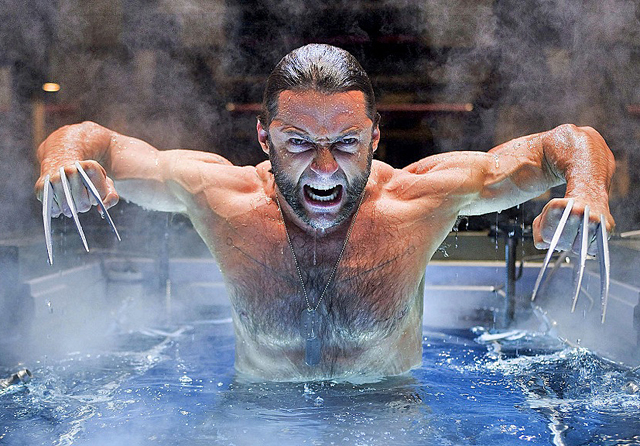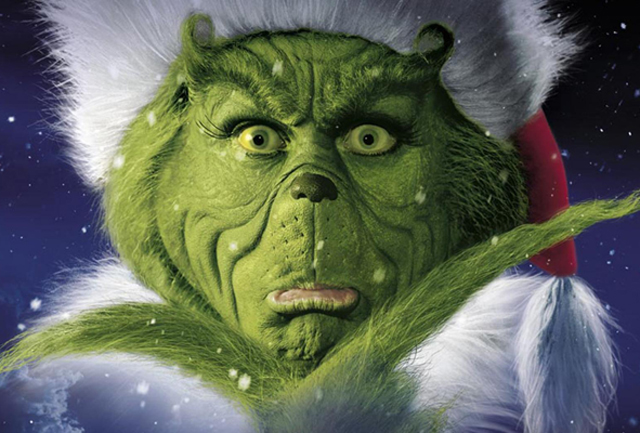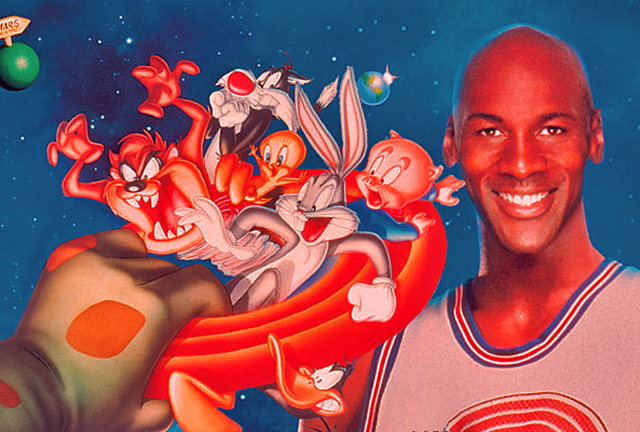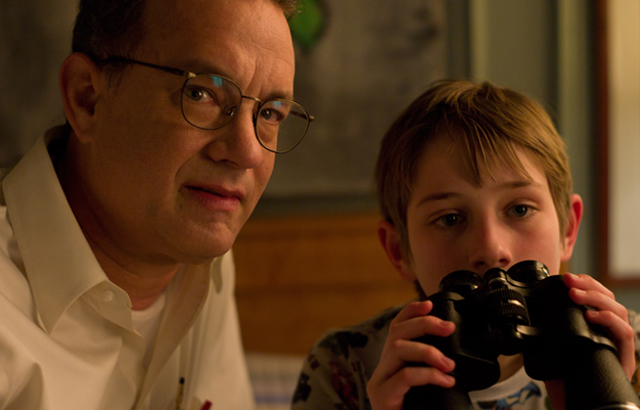
With the past year at a close, the next few weeks present to us the season in which the last year was all leading up to; awards season. One thing that is commonplace pretty much every year is the scramble to get in last minute consideration before the deadline of the year’s end cuts off prevents any more inclusion. In these final weeks of December, the goal is very clear from all contenders; get the most attention that you can. As accolades begin to pile up from various year end awards, this is when the attention from the Film Academy is at it’s highest, and the potential of making their shortlist of nominees becomes even higher. Some movies have better chances than others because they appeal to the general tastes of the Academy’s voting body, which can be frustratingly predictable at times. These movies are what we generally know as “Oscar Bait,” which are films that are specifically manufactured to appeal solely to the people within the industry who vote for the Academy Awards. And given the insular, sometimes out of touch voting body of the Academy, these movies tend to always end up being small dramas that tackle some social issue or features a performance where the actor goes through some body transformation that makes them(how to put this lightly) less glamorous. Essentially, they are movies that are pandering to a specific group of elitists, and typically because of that, the movies have limited appeal and even smaller box office grosses. And you wonder why the Academy Awards has a problem with popularity. Oscar Bait movies are not all bad; some are even great and deserving of their honors. But, when they are bad, they become infuriatingly so, because their very pandering nature exposes the cynicism behind their creation and the greedy intentions of their producers. And, depending on the type of story and issue that the movie is tackling, it can become downright offensive.
A couple years back, I made a top ten list of failed Oscar Bait movies, and what ended up topping my list was Micahel Cimino’s Heaven’s Gate (1980). My criteria for the list called for the top movie to be the one that crashed hardest in it’s attempts to win an Oscar, and Heaven’s Gate is notorious for being an Oscar Bait movie that bankrupted it’s studio (United Artists) and destroyed it’s director’s reputation. But, here’s the thing, Heaven’s Gate is not a terrible movie. In fact, it’s gone through a critical reevalution in the last few years thanks to a stellar restoration and a Criterion Collection release, helping to soften it’s notorious reputation. If you want to look at the worst ever Oscar Bait movie, you only need to look at my #2 on that same list; Extremely Loud and Incredibly Close. The Stephen Daldry directed feature is pretty much the textbook example of a bad Oscar Bait movie. It’s pandering, it’s obnoxiously self-indulgent, it’s enormously shallow and insincere, and worst of all, exploitative. And yet, somehow, it managed to do what Heaven’s Gate could not; get a Best Picture nomination. I guess that doesn’t make it a failed Oscar Bait movie, because it at least got itself a place at the table, but really, at what cost? Extremely Loud is personally my most hated of Oscar baiting movies, which are the ones that use it’s very important subject matter to do nothing other than gain the attention of Oscar voters. And here’s the more insidious thing about it; it doesn’t just stick to one grim subject matter either. We get the entire buffet in one movie. We get the Holocaust, mental disorders, racism, and the Twin Tower attacks of 9/11 all in this mess of a movie. Had they thrown a person dying from AIDS the movie would have hit an Oscar BINGO (thankfully the movie never went that far). But what we did get presented us with probably the most grossly transparent attempt at baiting the Academy for an Oscar, and sadly the industry took a nibble before rightfully throwing this one out.
To understand why a movie like this came to be in the first place, you have to consider the period in which it was made. The movie came to theaters just after the ten year anniversary of the 9/11 terrorist attack; a point in time after the tragedy when the industry felt it was appropriate to begin dramatizing the event on film. Before this, only two other films had tackled the tragedy; Paul Greengrass’ United 93 and Oliver Stone’s World Trade Center, both from 2006. Both tackled the event head on, with true life stories and managed to gain varying degrees of success among critics. But, Extremely Loud took a different approach to the event; using it as a backdrop to their own fictional story. Many films do that of course, but there is a purpose most of the time to those that choose to set their story that way. Titanic (1997) of course used a Romeo and Juliet style love story to place a dramatic connection for the audience in the midst of all the true events of the tragedy. 9/11 is a trickier event to tackle because of the widespread ramifications that the event had on the world at large; including becoming a hot button political issue, even today. Extremely Loud makes the aftermath of the terror attack part of it’s own narrative, primarily with regards to the trauma that the city of New York went through. Some movies could tackle that kind of narrative effectively, without ever having to resort to recreating the event itself. Spike Lee managed to to that effectively in his film 25th Hour (2002), which was made a mere year after the attack, and told the story of the people still feeling the pain of loss. The way that worked is because the movie was about the longer lasting effects of trauma on people, and how that creates problems down the road itself. Extremely Loud on the other hand not only wants to use the 9/11 terror attacks as a factor in it’s movie, but it even seems to expose old wounds that many had hoped would be healed with time.
Here’s where we get to the most controversial aspect of the movie, and a prime example of where movies that pander to an a certain kind of audience ends up crossing the line. In various parts of the movie, the 9/11 attacks are dramatized; not particularly outrageous in itself, except the filmmakers decided to do so with a misguided artistic flair. The character played by Tom Hanks in the movie, Thomas Schell, is a victim of the terror attack, with the movie focused on the coping with grief that his remaining family goes through afterwards. At several points, Thomas’ son Oskar (which is in no way another pandering move, I say in a sarcastic tone) has nightmarish flashes of imagination where he sees his father falling from the building like one of the horrifying videos of jumpers captured on that day. These moments take this tragic aspect of the tragedy and dramatizes it in a way that feels extremely exploitative. The scenes don’t just recreate the falling, they stylize it. The opening credits in fact play over a cringe-inducing slow motion shot of Tom Hanks falling in mid air. This is not the kind of thing that you use visual poetry on. To make matters worse, there is no need in the narrative whatsoever for these moments to happen. It just comes at you as a slap to the face reminding you of what a tragedy 9/11 was. It’s the same kind of exploitative tactic that you see when a documentary or narrative film suddenly splices in footage of the towers collapsing, knowing the power that those terrifying images still have. The images of 9/11 are profound in their scale of cataclysm, but to take those and offer up an artistic spin like the one in this movie almost feels like it’s intentionally wanting people to feel the pain of the events again. It’s like the movie doesn’t care what feeling it’s audience has toward the event; it just knows that there is power in the images that we saw from that day, and it wants to use it to elevate it’s own sense of importance.
That’s where the movie especially rubs people the wrong way, with it’s emphasis on it’s own importance. The movie wants you to follow these characters around and learn about their struggles, but here’s the problem; the struggles carry more importance that the characters themselves. Every character is a pastiche of your typical tragic backstory individual that usually populates movies that carry some importance. Most of the time, we accept a character or two that has a personal tragedy that motivates their existence within a narrative; but not when the entire movie is populated with them. The book on which this movie is based, written by Jonathan Safran Foer, probably addresses each individual problem with all the characters with more nuance, since novels allow more time and introspection to establish each character’s purpose in the story (I can’t judge for certain because I haven’t read it). The movie adaptation, done by the usually reliable Eric Roth, dispenses with subtlety and just goes for the essential hardship that defines each character; whether it’s loosing a husband on 9/11 like Oskar’s mother (played by Sandra Bullock), or having survived the Holocaust like his grandparents. All we get out of their character development is how each personal tragedy shaped them, and this carries little resonance as there is nothing else remotely interesting about each character. To the movie, the personal tragedies are all that matter and that makes the movie feel especially exploitative. It’s as if the movie doesn’t want anyone to know anything more about the movie other than it touches on these important issues, because it certainly doesn’t have worthwhile characters. If you look at other movies that tackled serious issues, they always managed to find a way to ground their narrative with a deeply relatable story. But, when everyone has baggage, then the narrative comes across as false and unrelatable. Not everyone in New York has a deep connection to the many plights that has befallen society; and yet Extremely Loud and Incredibly Close seems to believe that all of these people are so easily accessible in one neighborhood.
Compare the way the movie deals with something like the Holocaust. The worst tragedy of the 20th century is merely represented here through the presence of Oskar’s grandparents, who seem so disconnected from their past experience. The Holocaust is merely just an extra bit of character detail here; never fully explored and yet always reinforced on us the audience. If the movie really wanted to give more importance to how the Holocaust could fit in their narrative, they could have included a moment when one of the grandparents sits down with Oskar and helps him learn how to move beyond the pain of loss endured through such an ordeal and find positivity again. But, no, we only get the information that both grandparents are Holocaust survivors and that this is enough to give the movie the extra weight of importance. It doesn’t help that one of the grandparents is a mute, which is never really given a full explanation as to why. You would assume the tragedy of the Holocaust would’ve done that, but the movie seems less interested in connecting the dots. To be fair, Max von Sydow’s performance as Oskar’s mute grandfather is the one redeeming aspect of the movie. The film doesn’t do a good job of explaining the real truth behind the character, but Sydow is able to communicate so much through his simple gestures and expressions, which helps to give some element of authenticity to this film that severely lacks it. He received the movie’s only other Oscar nomination, and lost out to fellow octogenarian acting legend Christopher Plummer that year. But, Max von Sydow’s long and storied career gave him the ability to find the humanity in this character and make him more than just a archetype, which is sadly not the case with everyone else in the movie. If there was ever an event where the personal story mattered with regards to the characters, it would be the Holocaust where the outpouring of personal accounts in the wake of Schindler’s List (1993) made such an impact in defining that period of time in human history. Here in this film, it’s just there to get attention, and that makes it feel very wrong and misused.
But, the movie’s biggest problem is with the little, walking talking plot device that is Oskar. He is where the movie focuses all the Oscar Bait formula into and creates perhaps one of the most insufferable characters to have appeared in a movie perhaps ever. Oskar, a twelve year old boy with mental abnormalities, must learn to let go of the pain he has felt since the loss of his father on 9/11, and in the meantime, reconnect with the estranged Holocaust-surviving grandfather that he barely knows. The movie deposits a treasure hunt for him to complete, that his father had set up before his death, and the movie uses this narrative structure to take us through the aforementioned greatest hits of every Oscar baiting subject known to man. It doesn’t help the fact that Oskar himself is not only not very interesting, but he is also incredibly annoying. I don’t want to blame this on the young actor, Thomas Horn, who plays Oskar, because it’s not his fault the character is terribly written and poorly conceived. But the film rests so much on him to carry the film, and it does so by making him talk a whole lot. The movie also fails in portraying his mental state in any meaningful way, because it never really commits to it either. The movie heavily implies that he has Aspergers Syndrome, but it never commits to it, and in some instances, portrays his disability as a quirky aspect of his character. Never once does the movie address the daily hardships that most people with the disorder must overcome to live a normal life, and again like everything else, just merely uses it as another element in the story to inflate it’s own sense of importance. This is the most often exploited Oscar bait tactic for many movies, and you can fill a whole library with all the movies that failed hard in an attempt to dramatize a persons disorder. It feels even more egregious here because it’s the mental disorder that fuels the character of Oskar, and makes him feel less genuine as a person. You never want to tell someone like this to shut up in real life, but this movie really grinds your nerves and it pushes Oskar so heavily to the forefront. And in doing so, it takes this movie from forgettable Oscar Bait garbage, to irredeemable and notorious Oscar Bait garbage.
I cannot stress enough how infuriating this movie is to sit through. It’s always clear what the movie’s intentions are, and it’s cynical ploy to grab the Academy Awards attention is frankly offensive when you see the things it’s exploiting to get there. The movie is not content to take on one issue, it wants to do all of them; perhaps banking on the odds of quantity over quality. We get our Holocaust backstory, and the mental illness angle, and this movie carries the notorious reputation of adding the tragedy of 9/11 to the checklist of things Hollywood can exploit for awards fare. The fact that this movie uses them is not the problematic part; it’s the fact that it uses them without care. The Holocaust and 9/11 are just tools for this movie, completely devoid of any really exploration and just there to remind the audience of how awful the world is. When a movie addresses an important issue, it must come with a story that transcends it’s placement in that moment and helps to personalize it for all audiences to understand it’s importance. Schindler’s List brought many harrowing stories to the forefront, but centered it around an interesting character study of a man who saved lives by exploiting a system to his advantage. Rain Man (1988) brought a portrayal of living with a mental disorder to life, but framed it within a story of two estranged brothers reconnecting on a road trip. The best way that these elements can work in a movie is if the film never intends to do anything else than shed light on these important issues. That was clearly Spielberg’s intention with Schindler’s, and he’ll tell you that the proudest outcome of that movie was seeing the floodgates open with numerous survivor’s stories after the movie came out. Extremely Loud and Incredibly Close doesn’t care about any of it’s issues; it’s a fabricated gift bag to the Academy hoping to get attention in the most desperate of ways. The fact that the Academy almost fell for it is a pretty sad statement, and it shows just how easily the body can be manipulated. Everything you hate about Oscar Bait movies can be found in Extremely Loud and Incredibly Close, and that’s what makes it one of the most insufferable and at times most offensive movies to ever get this close to Oscar glory.
